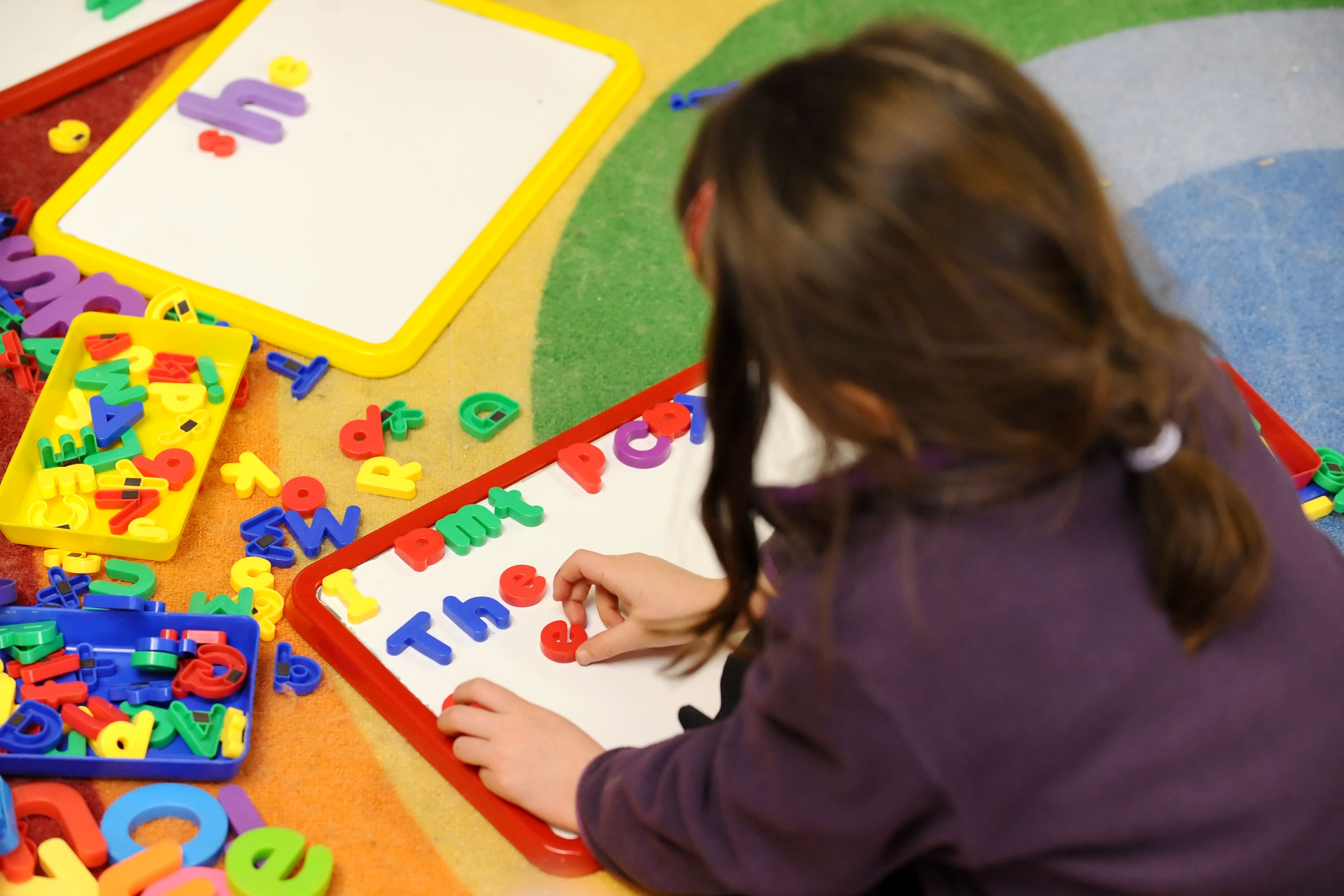The UK is failing to get children ready for school – and time is running out
Children can barely recognise basic words by the time they start school. Investing in early years education is essential for their future, writes Sarah Brown, wife of former PM Gordon Brown and chair of children’s charity Theirworld


In 2030, a child born this year will turn six years old. They will either have started primary school or, in other parts of the world, be about to start primary school. In that same year, the world is supposed to achieve the United Nations Sustainable Development Goals, consigning hunger, poverty and inequality to the history books.
There is no chance that those targets will be reached on time. That is an open secret. What is less well recognised is how far we could go to eradicating these global blights on humanity if we were making sure that children – both here in the UK and around the world – arrived ready for primary school, the first milestone in their formal education.
That means children who have received quality care in the first five to six years of their lives: good healthcare, nutrition, play and preschool during this vital period when 90 per cent of brain growth takes place, who will start school in a position to develop their full potential.
In a new survey for Theirworld, however, teachers in the UK report an increase in the number of pupils in reception classes who struggle to socialise, identify letters and numbers, recognise simple words, including their own name, or perform basic tasks such as washing their hands. Six in 10 primary school professionals feel that problems with school readiness in the UK have worsened in recent years, thanks to children not attending preschool and the knock-on effect of learning disrupted by Covid-19.
The effects of poor school readiness are well known: children who arrive effectively a year or two behind their peers face immediate challenges of having to catch up while coping with a sense of inadequacy from day one. In the longer term, they tend to have worse outcomes over their entire educational career and are likely to earn less than peers who were better prepared. Disadvantaged children are more likely to suffer poor health, poverty and to be involved in crime.
In the immediate term, the problem is now so bad that it is estimated UK teachers are losing 2.5 hours of teaching time, every day, trying to support children who aren’t school-ready.
It is not just a severe lack of investment in early years education that is putting millions of children at a disadvantage before they even start school. It is a lack of vision and commitment, a lack of recognition of that investing in the early years is the best thing a government can do, not only for its children, but the wider economy and society.
However, there are at last signs that the world is beginning to wake up to the potential of investing in the early years. Beyond the usual “suspects” among Nordic, Baltic and eastern European and east Asian countries, we are now seeing sweeping, ambitious early years policies in other places. South Africa’s National Development Plan 2030 includes the goal of providing universal access to early childhood development by the end of the decade, including two years of quality preschool.
The Ethiopian government, in collaboration with the mayor of Addis Ababa, has expanded early childhood development programming to all children under the age of six, including universal preschool, daycare centres, home visits by social workers, and more public play areas. Paraguay has adopted an early childhood education investment programme, which has significantly contributed to an increase in early learning coverage among children aged three to five.
Brazil is about to establish a new national early childhood policy, aiming to provide comprehensive support for young children and their families. As the current president of the G20, Brazil is placing investment in families and our youngest children at the centre of its agenda. The African Union, the newest member of the G20, has also identified early childhood as a policy priority.
And, later this month, in the corridors of the United Nations General Assembly, world leaders will talk about why we need to hold the first ever global finance summit on the early years, in order to focus minds and find the funding to transform the prospects of the world’s children aged under six.
This would not just be a moral win, but an economic and social win of endless potential. Investment is a choice. It does cost money up front, but the rewards are huge.
It is very good news to see so many influential developing countries beginning to make that choice, even as others such as the UK now lag behind by some measures. Six years doesn’t sound long to most of us. But in the life of a child, it is irreplaceable. For their sake, we cannot afford to delay any longer.
Sarah Brown, the wife of former prime minister Gordon Brown, is chair of the Theirworld children's charity and executive chair of the Global Business Coalition for Education
Join our commenting forum
Join thought-provoking conversations, follow other Independent readers and see their replies
Comments
Bookmark popover
Removed from bookmarks